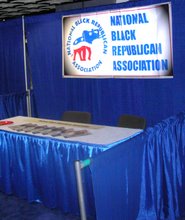Far too frequently, unthinking neo-conservatives extoll the virtues of the free market, believing that they will somehow reach the financial heights of the duplicitous priests of privatization they consider their elected representatives. They seek privatization of everything from public schools to social security. What the neo-con congregation doesn't know, mainly because they're too stupid to think, is that the free market they yearn for is neither free, nor the ladder to financial success.
A totally "free" market where corporations reign supreme, just like the oppressive governments of old, Jefferson said could transform America "...until the bulk of the society is reduced to be mere automatons of misery, to have no sensibilities left but for sinning and suffering. Then begins, indeed, the bellum omnium in omnia, which some philosophers observing to be so general in this world, have mistaken it for the natural, instead of the abusive state of man."Beginning with the Interstate Commerce Commission Act of 1887 —the first federal law regulating the abuse of monopoly power— the mythical free market, that created such desirable American institutions like sweatshops filled with minor children working from sun-up to sundown, has had to be regulated. Without the dreaded "interference" of the government, there would be no eight-hour workdays, nor would there be the concept of a "weekend" for that matter. The soldiers returning home from war would not have been able to attend college on the GI Bill (and thereby better their chances of climbing the corporate ladder) or buy a home with VA loans.
As Jefferson realized, with no government "interference" by setting the rules of the game of business and fair taxation, there will be no middle class.
Although this may come as a sudden realization to many, we've really known it all our lives.
For example, every year, millions of Americans revisit Charles Dickens "A Christmas Carol" about Ebenezer Scrooge and Bob (and Tiny Tim) Cratchit. Yet somehow Americans fail to realize the subtext of the story (and so many of Dickens' other works). That subtext is that the middle class is not a normal thing: exploited workers are the norm. In fact, in the six-thousand-year history of the "civilized" world, a middle class emerging in any nation has been such a rarity as to be historically invisible.
...to be continued

No comments:
Post a Comment